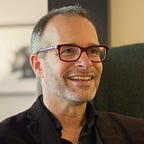Biology as an Emerging Asset Class
Many of the presentations I’ve given over the years were to investment groups seeking to understand what’s ahead in life science.
This last summer, I had the opportunity to speak to wealth management groups in Geneva. While the pharma and biotech industries have long been of interest to institutional investors, my presentation focused on how biology itself is starting to be recognized as an emerging asset class, one that is quite different from traditional asset classes like equities, real estate, and commodities.
My thesis is that, as biotechnology advances, the value of biological data, preserved tissues, and live cells is poised for exponential growth, both economically and in terms of life-changing potential.
Take personalized medicine, for instance, where your DNA could become a personalized roadmap for healthcare, directing you toward the most effective medicines and warning you of potential health risks.
The concept of a digital twin also comes into play, something that I’ve explored in the past but is becoming more technologically feasible in recent years with companies like Blue Vishnu. Combined with biodata, the twin could become even more predictive and powerful.
Person-specific cancer therapies, like CAR-T, could be developed using cells stored today, offering groundbreaking treatment options, while further advancements in tissue engineering could eliminate the need for organ donor waiting lists, as new organs could be grown from your own cryopreserved cells.
On the reproductive front, technologies like In Vitro Gametogenesis (IVG) could use preserved cells to create sperm and eggs, redefining fertility options.
Biological assets could pay a big dividend in life extension. The cells you bank now could potentially be used for tissue engineering or cell therapies. Looking further into the future, they could even be used to clone you in a future where cloning becomes a legal and socially accepted practice.
Even in the financial sector, the fusion of biological assets and blockchain technology might give birth to new forms of tradable, digital bio-assets, akin to NFTs. And let’s not overlook biosecurity; your biological data could become the ultimate secure form of identification.
All of these avenues not only have the potential to improve our quality of life but also create entirely new opportunities for economic investment.
As synthetic biology and AI technologies mature, they could deliver an impressive ROI — one not always measurable in dollars, but in a better life — making biology a compelling and increasingly accessible asset class for both individual and institutional investors.
But given the complexity of these biological assets, it’s likely that a new breed of wealth managers, specialized in navigating the intricacies of bio-assets, will emerge to guide investment strategies.
Overall, biology is not just the science of life anymore. It’s increasingly becoming an important asset class with unique investment opportunities and challenges, warranting its own strategies, risk assessments, and ethical considerations.
Andrew Hessel is the co-author of The Genesis Machine: Our Quest to Rewrite Life in the Age of Synthetic Biology. He’s also the co-founder of Humane Genomics, a company that makes artificial viruses that target cancer, and the Genome Project-write, a champion of whole-genome engineering. He loves thinking about possible futures through the lens of biology and empathizes with molecules and microbes.
